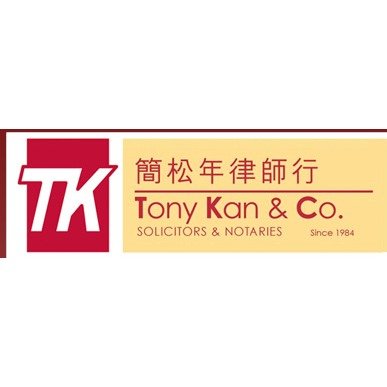Best Patent Lawyers in Shatin
Share your needs with us, get contacted by law firms.
Free. Takes 2 min.
List of the best lawyers in Shatin, Hong Kong
About Patent Law in Shatin, Hong Kong
Patent law in Shatin, and Hong Kong at large, involves the exclusive legal rights granted to inventions that provide a new way of doing something or offer a new technical solution to a problem. The Intellectual Property Department of Hong Kong is responsible for regulating patents in the region and they uphold the Patents Ordinance (Cap 514). This Ordinance caters to standard patents and short-term patents and is an essential part of the intellectual property laws in Hong Kong.
Why You May Need a Lawyer
Several situations may require legal assistance concerning patents. These include filing a patent application, debating the validity of a patent, suing for patent infringement, and defending against patent infringement claims. Patent law can be complex and a minor mistake could invalidate your patent or impede your ability to enforce it. Legal advice can guide your understanding of patent rights, infringement issues and even in drafting a patent description that complies with legal technicalities.
Local Laws Overview
The key aspects of patent laws in Shatin, Hong Kong, involve the application process, rights conferred by a patent and the duration of the patent. Under the Patents Ordinance, for a standard patent, an applicant must first file a patent application with a designated patent office outside Hong Kong and then apply for the same patent in Hong Kong. Short-term patents are directly filed in Hong Kong. A patent confers the right to prevent others from exploiting the patented invention in Hong Kong and standard patents have a renewable life of 20 years while short-term patents last 4 to 8 years.
Frequently Asked Questions
1. How can I apply for a patent in Shatin, Hong Kong?
You need to file a patent application with the Intellectual Property Department of Hong Kong. For standard patents, there are two stages: filing with a designated patent office outside Hong Kong and then requesting registration and standard patent grant in Hong Kong. Short-term patents are directly filed in Hong Kong.
2. How long does a patent last in Hong Kong?
A standard patent in Hong Kong can last up to 20 years, provided you renew it every year after the third year. A short-term patent lasts for 4 years and can be renewed once for another 4 years.
3. Can a patent registered in Hong Kong be enforced outside Hong Kong?
No, a Hong Kong patent is only valid and enforceable within the territory of Hong Kong.
4. What conditions must my invention meet to be considered for a patent?
Your invention must be new, involve an inventive step and be industrially applicable. It should not be something previously disclosed publicly anywhere in the world.
5. What can I do if someone infringes my patent rights?
If someone infringes your patent rights, you can file a lawsuit against them. It's best to consult a lawyer for legal advice in this situation.
Additional Resources
The Intellectual Property Department of the Hong Kong Special Administrative Region provides comprehensive guidance and resources on patent applications and laws. Furthermore, the Patent Application Guide offers a step-by-step breakdown of the application process.
Next Steps
If you need legal assistance in patent law, consider hiring a lawyer specialized in this field. They will help you understand the nuances of the law, assist in patent filing, and represent your case if any legal dispute arises. Prior to hiring, make sure your lawyer is registered with the Law Society of Hong Kong and has relevant expertise.
Lawzana helps you find the best lawyers and law firms in Shatin through a curated and pre-screened list of qualified legal professionals. Our platform offers rankings and detailed profiles of attorneys and law firms, allowing you to compare based on practice areas, including Patent, experience, and client feedback.
Each profile includes a description of the firm's areas of practice, client reviews, team members and partners, year of establishment, spoken languages, office locations, contact information, social media presence, and any published articles or resources. Most firms on our platform speak English and are experienced in both local and international legal matters.
Get a quote from top-rated law firms in Shatin, Hong Kong — quickly, securely, and without unnecessary hassle.
Disclaimer:
The information provided on this page is for general informational purposes only and does not constitute legal advice. While we strive to ensure the accuracy and relevance of the content, legal information may change over time, and interpretations of the law can vary. You should always consult with a qualified legal professional for advice specific to your situation.
We disclaim all liability for actions taken or not taken based on the content of this page. If you believe any information is incorrect or outdated, please contact us, and we will review and update it where appropriate.








